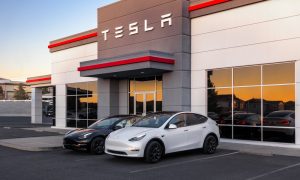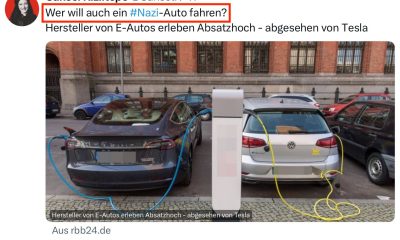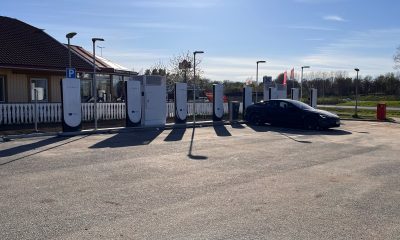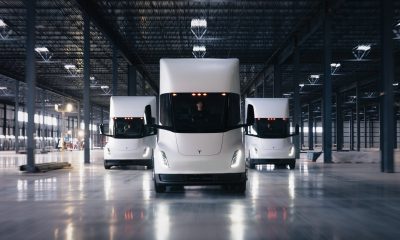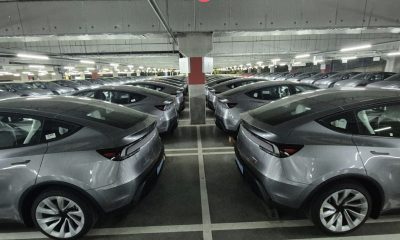News
Tesla Optimus units line up in Fremont’s pilot production line
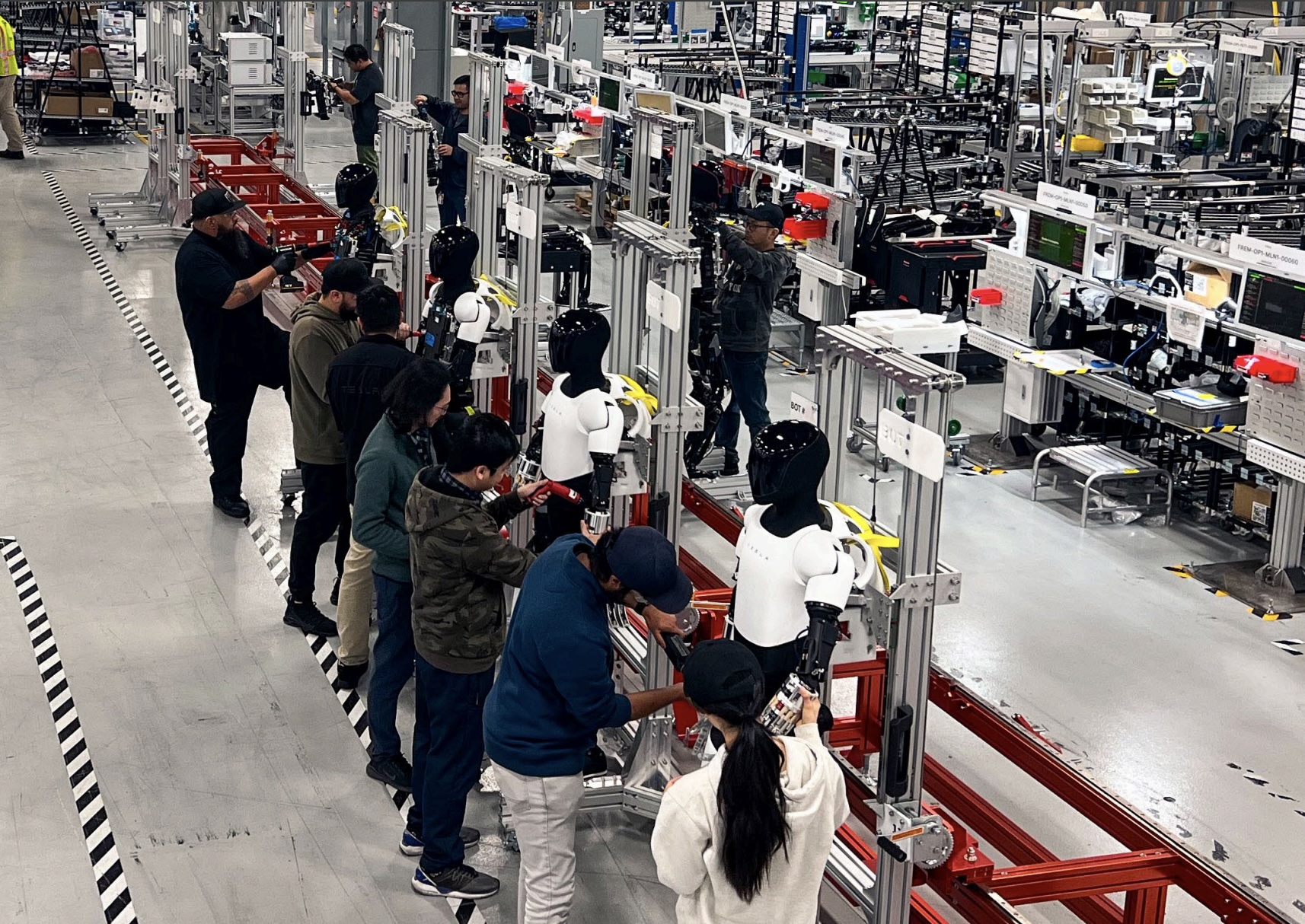
A first glance at the Tesla Optimus pilot production line was shared by the company during its Q1 2025 Update letter. Tesla noted that its Optimus production timeline remains intact with the company aiming to produce its first humanoid robots capable of useful work soon.
Tesla’s Optimus pilot production line is in the Fremont factory, a fitting place for the company to start any project. Tesla hopes for a wider deployment of the Optimus bots across its factories by the end of the year.
“And we’ve got Optimus. We’re making good progress in Optimus. We expect to have thousands of Optimus robots working in Tesla factories by the end of this year. And we expect to scale Optimus up faster than any product, I think, in history to get to millions of units per year as soon as possible. I feel confident in getting to a million units per year in less than five years, maybe four years,” shared Elon Musk during TSLA’s first quarter earnings call.
Musk later noted that Tesla’s Optimus production is still “very much a development program.” He clarified that Tesla will not jump right into large-volume production. Instead, Tesla will focus on producing a few thousand Optimus bots with most of the production taking place at the tail end of the year.
“So, almost everything in Optimus is new. There’s not an existing supply chain for the motors, gearboxes, electronics, actuators, really almost anything in the Optimus apart from the the AI for Tesla, the Tesla AI computer, which is the same as one in the car. So when you have a new complex manufactured product, it’ll move as fast as the slowest and least lucky component in the entire thing,” elaborated Musk.
Tesla is working with China to get a license to use rare earth magnets for Optimus. Earlier this month, China’s Ministry of Commerce imposed restrictions on the export of rare earth elements and magnets, responding to U.S. President Trump’s tariffs on Chinese products.
“So we’re working through that with China. Hopefully, we’ll get a license to use the rare earth magnets. China wants some assurances that these are not used for military purposes, which, obviously, they’re not. They’re just going into a humanoid robot. So that’s not a weapon system,” Musk explained.
Musk shared that actuators in Optimus arms use permanent magnets. He stated that Tesla did not need to use permanent magnets.
“Now Tesla as a whole does not need to use permanent magnets, but when something is volume constrained, like an arm of the robot, then you wanna try to make the motors as small as possible. And then so we did the design in permanent magnets for those motors, and those were affected by the supply chain,” the Tesla CEO commented.
News
These automakers are pushing to overturn California’s gas car ban
This lobbying group represents Detroit’s Big Three automakers, as well as several others selling vehicles in the U.S.
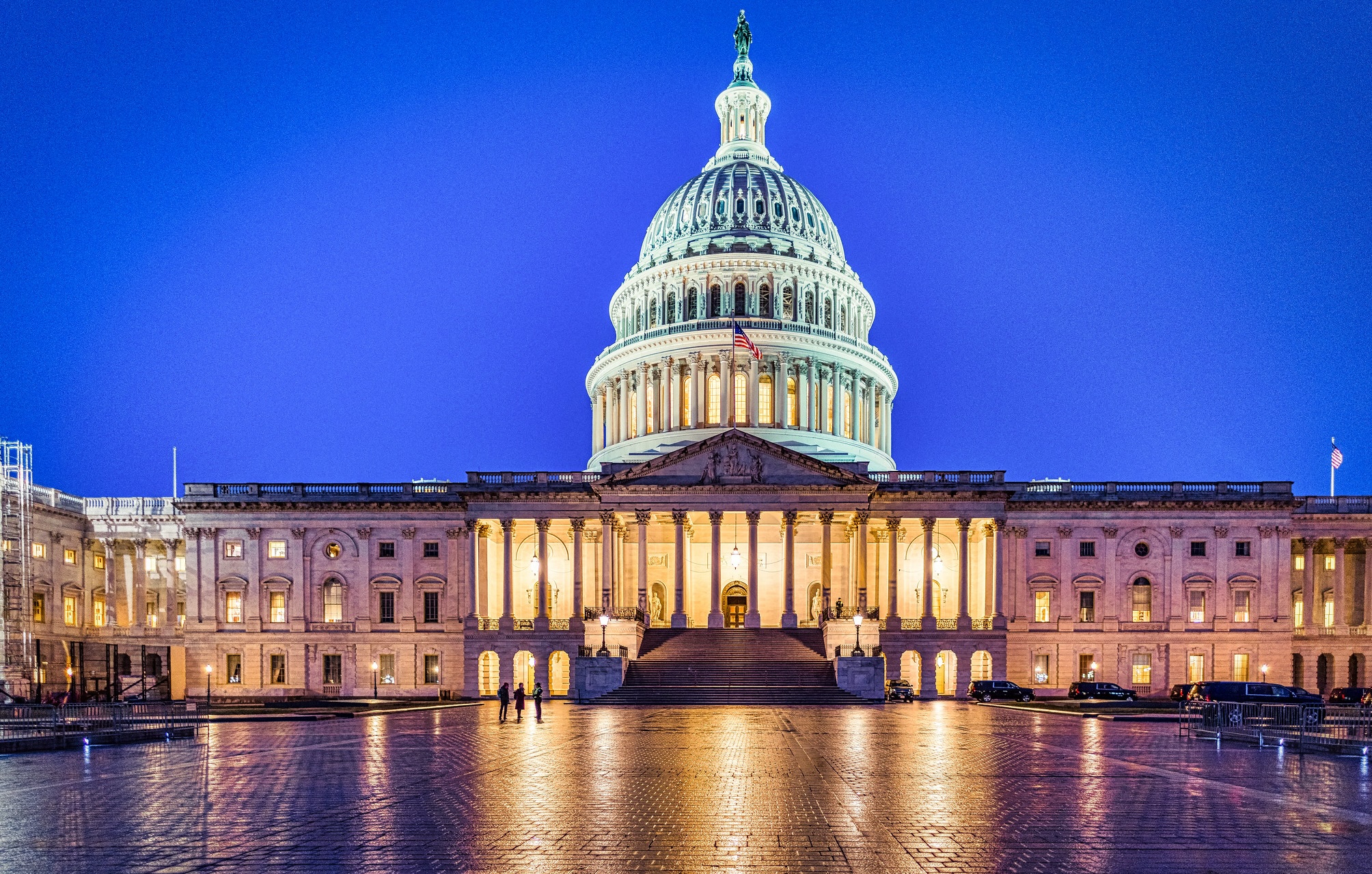
A lobbying group made up of several automakers is pushing Congress to ban California’s plan to phase out and ban new gas car sales altogether by 2035, ahead of a vote that could also affect the 11 other states that have followed with similar plans.
The Alliance for Automotive Innovation (AAI), an organization representing the interests of Ford, General Motors (GM), Stellantis, Toyota, Volkswagen, Hyundai, and several others, recently sent a letter to Congress requesting that it overturn a waiver granted to California letting it set its own emissions rules.
Later this week, the U.S. House of Representatives will vote on overturning the waiver granted to California under the 1968 Clean Air Act to impose the tightened standards, according to Reuters. In the previous letter, the AAI argued to Congress that automakers would be “forced to substantially reduce the number of overall vehicles for sale to inflate their proportion of electric vehicle sales,” adding that it would also boost prices and reduce competition in the market.
The waiver, enacted under the Biden administration’s Environmental Protection Agency (EPA), allows California to mandate at least 80 percent electric vehicle sales by 2035 under the Clean Air Act. The passage of disapproval of the waiver is being ushered under the Congressional Review Act, and an initial vote in the House of Representatives is set to take place on Wednesday.
READ MORE ON STATE EMISSIONS RULES: Tesla could face emissions credit tax in Washington
The U.S. Court of Appeals for the District of Columbia backed the EPA’s decision to grant the waiver last April, following a challenge from 17 Republican-run states. The group claimed that California was being given unconstitutional regulatory power in the decision, adding that other states didn’t have those same powers.
In December, the U.S. Supreme Court agreed to hear out bids from Valero, the AAI, and other groups to oppose the 2035 California gas car sales ban, which would begin phasing them out in 2026 if the waiver remains in place.
You can see the full list of members of the AAI below, including automakers and a handful of other tech companies.
Companies represented by the Alliance for Automotive Innovation (AAI)
Here’s the full list of AAI members, according to the lobbying group’s website:
- AESC
- AISIN
- Aptiv
- Autoliv
- BMW Group
- Bosch
- Denso
- Emergency Safety Solutions
- Ferrari
- Ford
- GM
- Harman
- Honda
- Hyundai
- InEos Automotive
- Infineon
- Isuzu
- Jaguar-Land Rover
- Kia
- LG
- Luminar
- Magna
- Mazda
- McLaren
- Mercedes-Benz
- Mitsubishi Motors
- Nissan
- Nuro
- Panasonic
- Porsche
- Qualcomm
- RV Industry Association
- Samsung
- SiriusXM
- SK On
- Stellantis
- Subaru
- Texas Instruments
- Toyota
- Uber
- VinFast
- Volkswagen
- Volvo
- Zoox
California proposal to allow self-driving tests for heavy-duty trucks
News
Neuralink’s third brain chip patient shares first video edited with BCI
The third Neuralink brain chip patient is the trial’s first patient with ALS and its first non-verbal patient, and he has detailed his experience regaining speech and more.
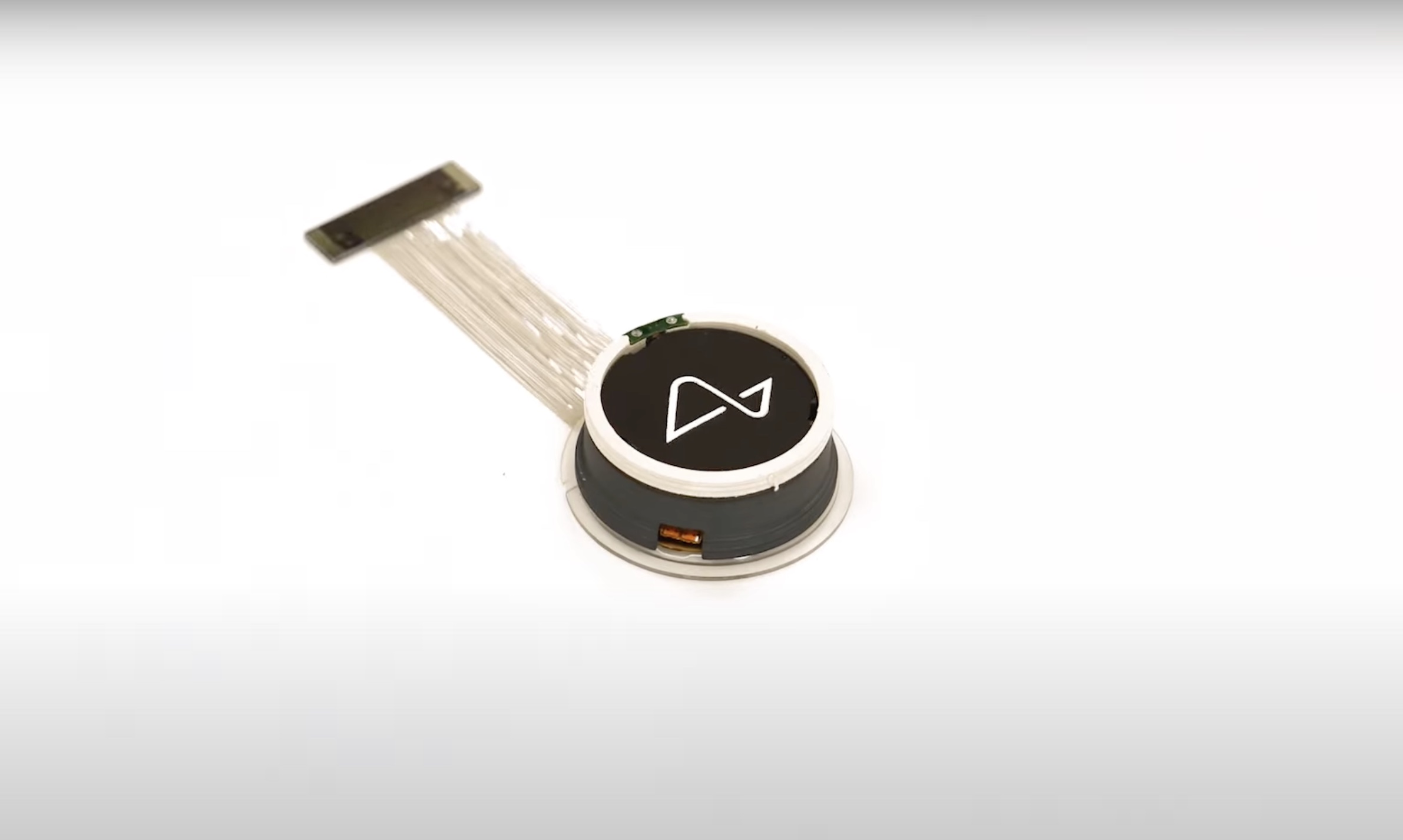
Elon Musk’s Neuralink has officially installed its brain-chip interface (BCI) into a third human patient, and the individual shared a video this week detailing his experiences gaining control of external devices and regaining the ability to talk through the use of AI.
On Monday, X user Bradford G Smith shared a video detailing his experience as the third person in the world to receive the Neuralink BCI, and as the first non-verbal patient and the first with Amyotrophic Lateral Sclerosis (ALS) to receive the implant. In the video, Smith details how the BCI works, how it’s less limiting than his previous eye tracker technology, and how it has literally helped him regain his voice through AI.
“I am typing this with my brain,” Smith wrote. “It is my primary communication.”
The video, which he says is the first edited directly with a BCI, is narrated by an AI-generated version of his old voice. Prior to the BCI, he was also unable to leave the house using his eye tracker, as it made it difficult to communicate unless he was in dark or low-light settings.
The video also shows how he’s able to connect with external devices using the BCI, with a live shots of him controlling his computer using a cursor.
You can see the full update below, which runs a little under 10 minutes.
READ MORE ON NEURALINK: Elon Musk: over 1,000 humans with Neuralink implants in 2026 is feasible
The news follows Neuralink’s initial update with Brad and other initial BCI patients, as was shared in a post on the company’s website in February. In it, Brad also explained how groundbreaking it was to be able to communicate outside and see his son win a robotics award, along with being able to consider leaving the city area for the first time in half a decade:
The most significant thing that happened this week will sound strange to you: I got to use the computer on the porch, and it worked!!
I went to [my child’s] soccer game, and the referee thought I was sleeping. I was actually able to talk outside. I [am] actually thinking about traveling outside the [city] metro [for] the first time in 5 years.
Both of Neuralink’s studies focus on restoring autonomy to people who are paraplegic through the use of external devices. The company gained initial approval from the U.S. Food and Drug Administration (FDA) to install the first BCI in a human patient in May 2023, with Noland Arbaugh being the first, a patient named Alex being the second, and Brad being the third.
Neuralink opened its Patient Registry worldwide earlier this month, allowing participants to submit to take part in the company’s initial PRIME and CONVOY studies. The firm also announced plans to operate the PRIME study out of a second location in Miami, Florida in January, after an initial location was launched in Phoenix, Arizona.
Last week, it was reported by Bloomberg that Neuralink is currently targeting a $500 million funding round at a valuation of $8.5 billion. Meanwhile, Neuralink has also been constructing office buildings near Austin, Texas, which initially aimed to be completed in May 2025.
Elon Musk
Tesla fends off new attack that will hurt consumers more than anyone else
Consumers stand to be hurt the most by a new bill that aims to take away Tesla’s Direct-to-Consumer licensing
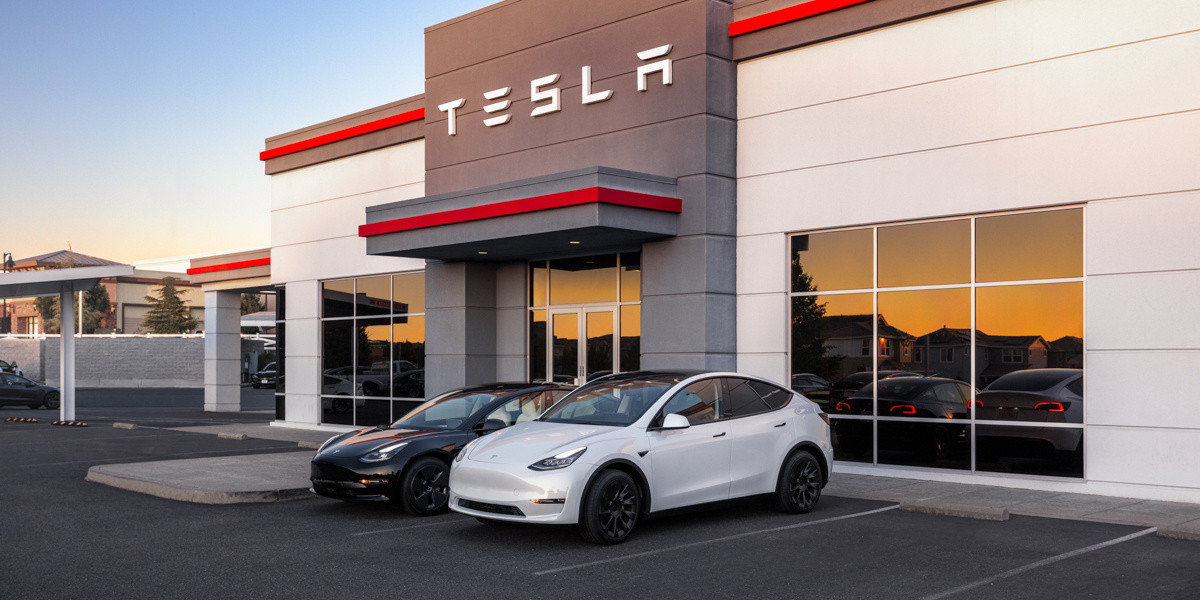
Tesla is likely going to be forced to fend off a new attack that is much different than the petty vandalism, arson, and domestic terrorism it has faced from those who oppose the company and its CEO Elon Musk. It would hurt consumers more than anyone else.
Over the past several months, we have reported numerous instances of vandalism against Tesla. No victim is too big or too small to be a potential target, as everything from keying vehicles to having Molotov cocktails thrown at showrooms is sufficient in the eyes of perpetrators.
However, the latest attack appears to be politically motivated and could hurt Tesla, its consumers, and even other automakers, and it seems to be some form of retaliation against Musk due to his affiliation with President Trump.
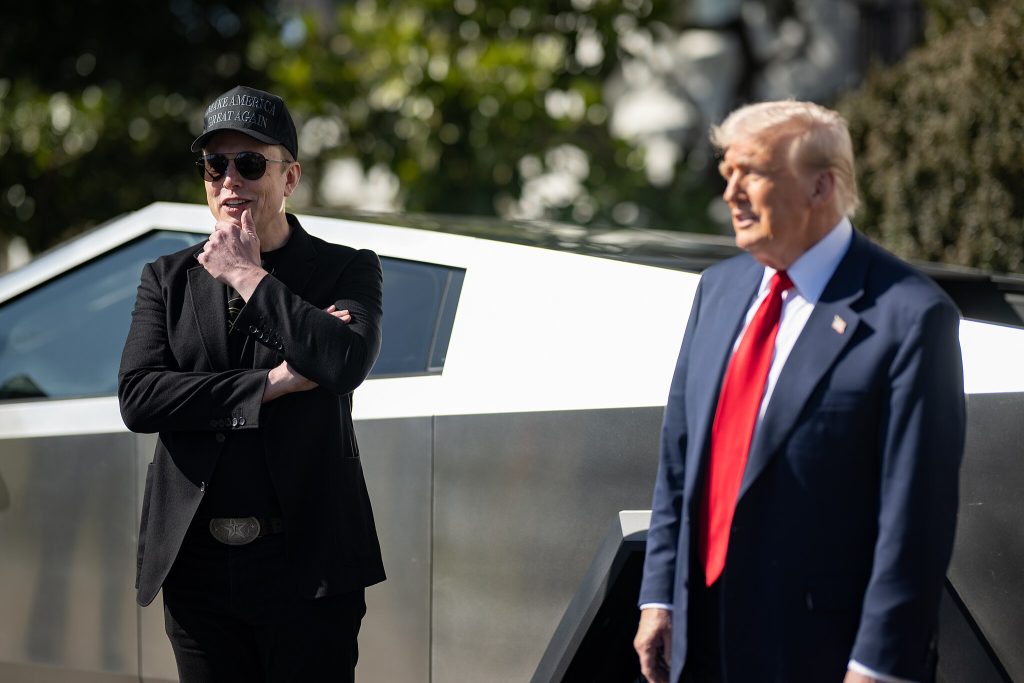
President Donald J. Trump purchases a Tesla on the South Lawn, Tuesday, March 11, 2025. (Official White House Photo by Molly Riley)
Lawmakers in New York state are now attempting to shut down Tesla showrooms in a move that would force the company to sell through dealer franchises, complicating the sales process and making the direct-to-consumer platform the company has used for years obsolete.
The New York Times reported that New York State Sen. Patricia Fahy is one of several lawmakers that is looking to hit Tesla where it hurts the most: its accessible and stress-free showrooms.
The problem is that this will hurt consumers more than Tesla.
Sen. Fahy said in March that the ease-of-sales platform Tesla uses has to be taken “from Elon Musk,” because “he’s part of an effort to go backwards.”
The licenses Tesla uses in the state allow it to sell cars directly to consumers instead of going through the traditional dealership model. These licenses, in Sen. Fahy’s perfect world, would be revoked from Tesla and given to other EV manufacturers. At one time, she was a proponent of Tesla and supported the company operating its D2C sales, stating it would cut emissions.
Now, Sen. Fahy believes Musk’s association with the Trump Administration is counterintuitive, as she says it is “killing all the grant funding for electric vehicle infrastructure, killing wind energy, killing anything that might address climate change.”
She continued by stating:
“The bottom line is, Tesla has lost their right to promote these when they’re part of an administration that wants to go backwards. Elon Musk was handed a privilege here.”
The bill is with the Senate and Assembly Finance committees.
-
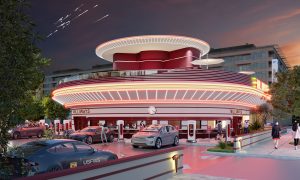
 News1 week ago
News1 week agoTesla’s Hollywood Diner is finally getting close to opening
-
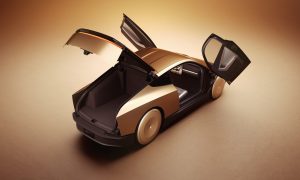
 Elon Musk2 weeks ago
Elon Musk2 weeks agoTesla doubles down on Robotaxi launch date, putting a big bet on its timeline
-
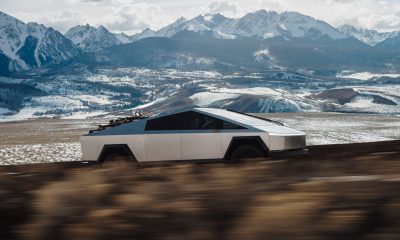
 News4 days ago
News4 days agoTesla is trying to make a statement with its Q2 delivery numbers
-

 News2 weeks ago
News2 weeks agoTesla’s top investor questions ahead of the Q1 2025 earnings call
-

 News2 weeks ago
News2 weeks agoUnderrated Tesla safety feature recognized by China Automotive Research Institute
-
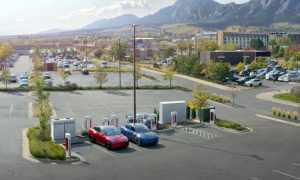
 News2 weeks ago
News2 weeks agoTesla reveals its Q1 Supercharger voting winners, opens next round
-
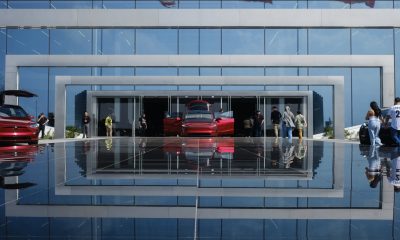
 Investor's Corner7 days ago
Investor's Corner7 days agoLIVE BLOG: Tesla (TSLA) Q1 2025 Company Update and earnings call
-
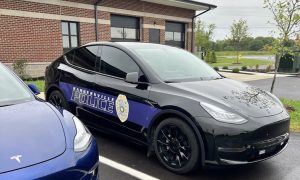
 News2 weeks ago
News2 weeks agoTesla police fleet saves nearly half a million in upkeep and repair costs

